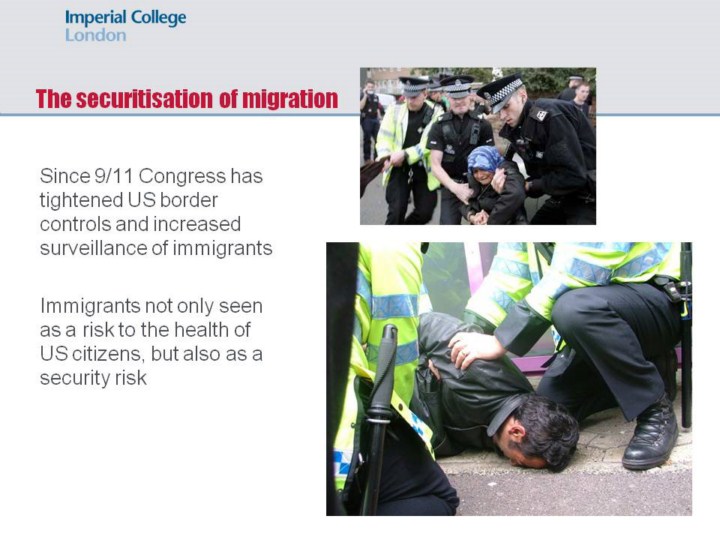| front |1 |2 |3 |4 |5 |6 |7 |8 |9 |10 |11 |12 |13 |14 |15 |16 |17 |18 |review |
 |
Another consequence of the anthrax attacks, and indeed of 9/11 more generally has been a reinvigoration of the public discussion of exclusion. Since 9/11, Congress has passed measures tightening control of the borders and intensifying the scrutiny and surveillance of immigrants’ (Fairchild:535) Migration has become synonymous with a new risk, where particularly since the 1980s, migrants have come to be regarded as a threat, rather than as necessary for the capitalist expansion of all Western economies. The discourse around migration has thus become ‘securitised’ and this securitisation of the discourse around migration is cemented by the fear that migrants may be supporters for insurgencies, or as potential contributors to uprisings and terrorist activities, leading to ‘ethnic profiling’ and subsequent deportation. That migrants are a security risk has come to be understood as fact, and any attempt to debate the notion that migrants are a threat is not given voice in the press (Ibrahim, 2005 826 /id).
|